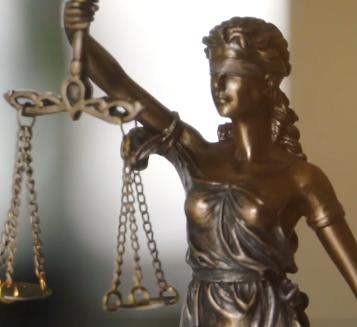The Role of a Legal Transcriptionist in the Court System
1) Clarity
Witnesses who backtrack in an interview, deposition or even on the stand can be effectively contradicted, thanks to the use of legal transcripts based on audio recordings. The entire premise of “I didn’t say that…” in a courtroom becomes a moot point because the judge can rely on a fuller, clearer record of the audio playback. While some court reporters may have captured the goings-on in a courtroom through their records, there is always a chance that they may have heard incorrectly. Transcripts based on audio recordings effectively eliminate the question of validity entirely.
For their part, legal transcriptionists using digital audio recordings can go back, review the incident as many times as needed and capture all of the spoken words, isolating different players in a deposition or courtroom and assigning them a role in the transcribed document with clarity.
2) Transparency
There are several cases where transcripts based on audio recordings have helped further the aims of transparency that court reporting, in general, is supposed to provide to a citizenry.
In other words, it keeps things honest. Governing bodies can also use the transcripts of recordings to verify judges’ behavior, using them wherever there is a question of a judge’s integrity, or a chance for corruption and misconduct.
Accountability is a direct consequence of increased transparency. With clear digital recordings and accurate transcripts, trial participants can expect access to these recordings with increased speed. This makes transcripts from digitally recorded proceedings a highly useful tool for verification.
3) Improving access to justice
Appellate courts obviously stand the most to gain from clear, transparent and accessible transcripts. When a case is appealed, a defendant needs to have access to an official record of the court proceedings relating to their trial.
This goes double if the trial is lengthy and unfolds over a period of years. Procuring court reporters’ official written transcripts is both a time-consuming and expensive process, slowing both the defendant’s search for justice as well as the judicial process as a whole.
Digital recordings and transcripts offer courts the ability to export digital media files and documents that are ready for review faster, with greater accuracy. This fast procurement allows other tangentially-related players — such as media reporters covering a case for citizen knowledge — a well-expedited process.
Courts are always in control of their files and transcripts but accessing these files — for journalists and laypeople — can be a streamlined process.
4) A fuller picture for juries
In State v. Olkon, a Minnesota case that involved Ellis Olkon and two counts of conspiracy to commit theft, the jury had to follow a cautionary instruction on the use of transcripts of audio recordings.
Essentially, if juries wish to listen to audio recordings during deliberations, they have to be returned to the courtroom and furnished with the transcript of the recording so they can consult this transcript while audio playback is occurring (Minn. Crim. R. Pro. 26.03, subd. 20(2) (b)).


Thanks for explaining that transparency in court transcription is important because it keeps things honest and verifies behavior. It makes sense that court reporters would need to take every measure possible to create an open and complete record of what happens. I’m glad I read your article because it was interesting to learn about the motivation behind regulations for court reporting practices. https://www.warereportingservice.com/court-reporters.html